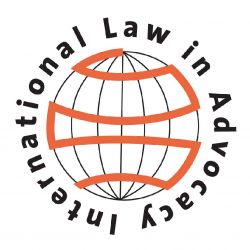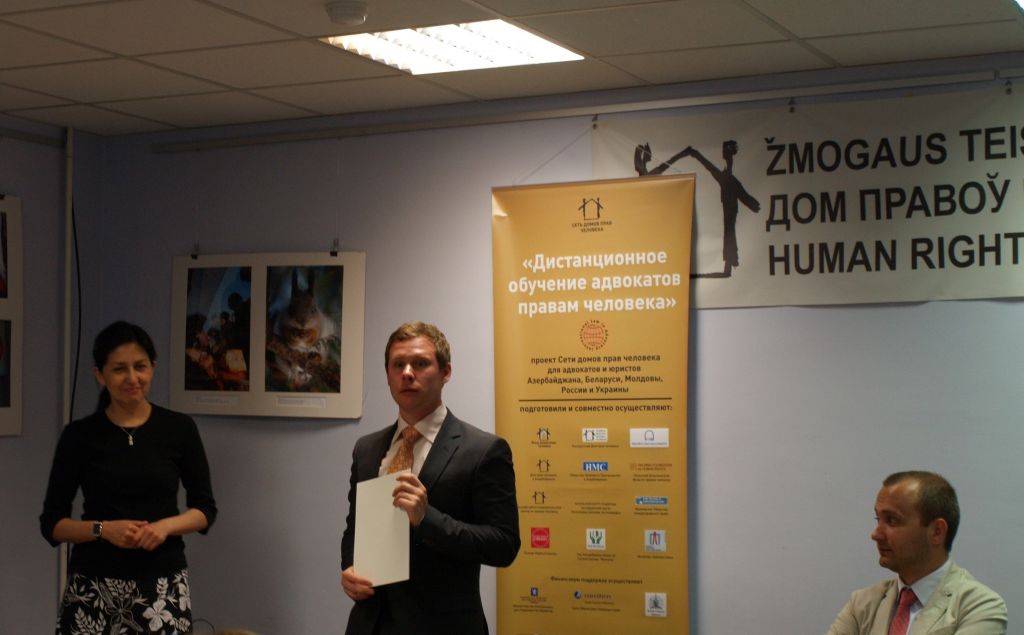During the year, the Belarusian participants of the project were receiving theoretical knowledge by completing tasks of the course, and in the framework of the seminar they were able to complete a practical exercise, enhance and demonstrate the knowledge gained in the project: moot courts are the widespread practice during the training of lawyers.
“Moot court is the particular form of training, which gives the best results. This is a training for lawyers, advocates, human rights defenders, in which they can represent different sides – both to act as representatives of the state, and as representatives of the human rights organization.The advantage of this method is that they all participate at the same time and are involved in different forms, “- said Alexander Vashkevich, a national expert of the project.
During the year the project participants received the theoretical knowledge of how to use the international and European human rights mechanisms and how to work with the international standards at the national level. National Project Coordinator Dzina Shautsova told everyone about the significance that education in human rights has for Belarusian lawyers: “National legislation is not always sufficient to protect the some right, it is needed to influence the legal system in all aspects. The education that is given in this area by Belarusian universities is slightly curtailed, and our course fills in the lack of knowledge among lawyers in this sphere.They get a foundation and compensate the missing elements.”
As the graduates of the course say themselves, the knowledge that the project provides cannot be obtained in the Belarusian universities, “Unfortunately, we are not taught human rights on the legal programs, and very little attention is paid to international documents, so I believe that such programs are useful for each lawyer , advocate and human rights defender, “- said Victoria Fedorova, lawyer, the graduate of the course.
One of the graduates of the course admitted that such a course would also be useful for Belarusian judges, prosecutors and investigators. At this point, advocates and lawyers face a lack of understanding of the importance of human rights, lack of knowledge of the norms and documents on the part of the state representatives.
Victoria Fedorova, the course graduate, also drew attention to this fact: “Our judges do not want to turn to the international instruments.Furthermore, even if you refer to the international norms in the statement of claim, the court does not always use it in the argument, it ignores and misses them, even though the court must give the reply to each norm given during the hearing.But the courts turn a blind eye.”
***
 The Electronic Human Rights Education for Lawyers (EHREL) is a project under the Human Rights House Network program “International Law in Advocacy” prepared and implemented in cooperation with Human Rights House Foundation’s partner organizations.
The Electronic Human Rights Education for Lawyers (EHREL) is a project under the Human Rights House Network program “International Law in Advocacy” prepared and implemented in cooperation with Human Rights House Foundation’s partner organizations.
The project is designed to bring lawyers from CIS countries together via online human rights training material prepared by international and national experts. The learning process is supervised by a team of managers, regional partners and coordinators.
The project facilitates efforts to fulfill commitments made within the framework of the United Nations, the Council of Europe and other international organizations to support implementation of human rights (HR) obligations in the Commonwealth of Independent States (CIS) countries.
Related articles
Russian graduate of ILIA project: "We can actually change the judicial practice in Russia!"
ILIA for lawyers from various legal systems: human rights are universal and their study is available
The work of Belarusian graduates of ILIA project: the response to serious problems of Belarus





